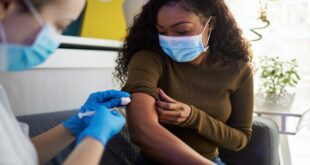Every 40 seconds someone in the United States has a stroke, according to the CDC.
A stroke occurs when blood supply in the brain gets suddenly blocked or when a blood vessel in the brain bursts, which prevents the brain from getting the oxygen it needs. Warning signs can include a facial droop, weakness, or paralysis on one side of the body.
Strokes continue to hit the African American community hard. Data from the American Stroke Association shows strokes are more common in Black Americans than any other racial group in the U.S.
According to the Office of Minority Health, Black women are twice as likely to have a stroke compared to white women. Black men are 70% more likely to die from a stroke compared to white men. Doctors credit this heartbreaking statistic to genetics and because African Americans are at higher risk for underlying conditions that can lead to stroke like high blood pressure, diabetes, and obesity.
“You’ve got to take care of you, otherwise there will be no more you left,” Dr. Donna Newsome from Texas Health Plano said. “You’ve got to listen to your body, listen to the people around you, listen to the doctor, please go to your doctor prevention is key.”
Doctors say a big misconception is it only affects older people, but that’s not the case. In January, Snoop Dogg’s 24-year-old daughter, Cori Broadus, shared that she suffered a “severe stroke.” Broadus has also publicly spoken about her battle with Lupus.
Dr. Newsome says anyone can reduce their risk of having a stroke by consistently seeing your primary care doctor, eating healthy foods, and working out.
“Diet is a big risk factor,” Dr. Newsome said. “We all know we’re supposed to exercise a minimum of three times a week. Actually doing it is another thing. These are things we can do.”
To spot a stroke remember to think F.A.S.T.:
F- face drooping
A – arm weakness
S – speech difficulty
T – time to call 9/11
Thanks for reading CBS NEWS.
Create your free account or log in
for more features.

 Latest Breaking News Online News Portal
Latest Breaking News Online News Portal





